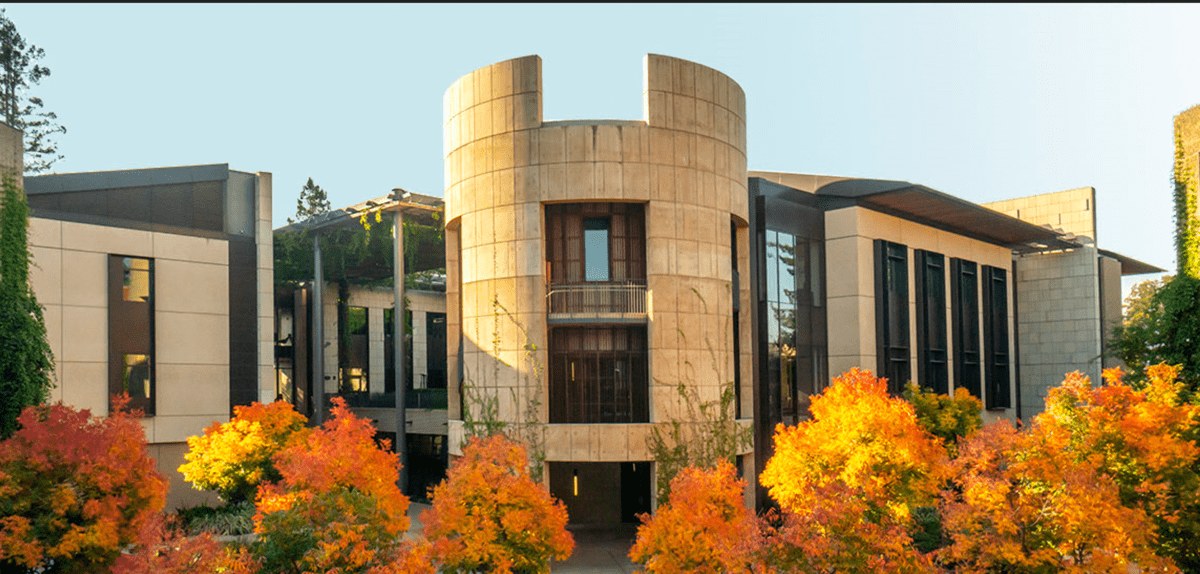Best Law Schools in the USA & Canada: Eligibility and Excellence
In the realm of legal education, selecting the right institution can be a pivotal decision that shapes the trajectory of one’s legal career. As we delve into the comprehensive landscape of legal academia, we present an insightful exploration of the top 5 law schools in the USA and Canada, shedding light on their distinctive features and eligibility criteria.
Harvard Law School: A Pinnacle of Legal Excellence
Unraveling the Prestige
Harvard Law School stands as an epitome of legal education, consistently securing its position among the world’s premier institutions. Renowned for its illustrious faculty, cutting-edge research initiatives, and an unparalleled commitment to academic excellence, Harvard Law School has rightfully earned its place at the zenith of legal education.Harvard Law School, synonymous with legal eminence, stands tall as a beacon for aspiring lawyers worldwide. Renowned for its distinguished faculty and commitment to cutting-edge legal research, Harvard Law School consistently secures its position among the global legal elite.
Eligibility Criteria
Securing admission to Harvard Law School is no small feat. Prospective students are expected to demonstrate exceptional academic prowess, a compelling personal statement, and impressive letters of recommendation. The admissions process is highly competitive, ensuring that only the most promising legal minds become part of this esteemed institution.
Yale Law School: Nurturing Leaders of Tomorrow
Distinctive Features
Yale Law School stands out for its emphasis on fostering not just legal practitioners but visionary leaders who can shape the future of law and policy. The school’s commitment to clinical experiences, interdisciplinary studies, and a diverse, vibrant community contributes to its unique standing in the legal education landscape.Yale Law School transcends traditional legal education, nurturing not just lawyers but visionary leaders shaping the legal landscape. With a focus on clinical experiences and interdisciplinary studies, Yale prepares students for the challenges of the future.
Admissions Prerequisites
Yale Law School seeks applicants with a proven track record of academic excellence, a compelling narrative in their personal statements, and a demonstrated passion for contributing to the legal discourse. The admissions committee carefully evaluates each applicant, ensuring that only those with the potential to make a lasting impact are admitted.
Stanford Law School: Bridging Innovation and Legal Expertise
Innovative Approach
Stanford Law School is synonymous with innovation, seamlessly integrating technology, business, and law. The institution prides itself on preparing students not just for the challenges of today but also for the evolving landscape of tomorrow’s legal profession.Stanford Law School emerges as a trailblazer, seamlessly merging technology, business, and law. With an innovative approach, Stanford prepares students not just for contemporary legal challenges but for the dynamic evolution of the legal profession.
Admission Standards
Prospective students aspiring to join Stanford Law School need to showcase not only academic excellence but also a keen interest in interdisciplinary studies. The admissions committee values diversity of thought and looks for candidates who can bring a unique perspective to the Stanford legal community.
University of Toronto Faculty of Law: Navigating the Canadian Legal Terrain
Canadian Excellence
The University of Toronto Faculty of Law emerges as a leader in Canadian legal education, providing a robust foundation for students to navigate the intricacies of the country’s legal system. Its commitment to global perspectives and practical learning sets it apart.The University of Toronto Faculty of Law takes center stage in Canada, offering a robust foundation to navigate the intricacies of the Canadian legal system. With a commitment to global perspectives and practical learning, the faculty stands as a pillar of Canadian legal education.
Entry Requirements
Aspiring law students eyeing the University of Toronto Faculty of Law should demonstrate academic proficiency, a well-crafted personal statement, and an understanding of the Canadian legal landscape. The admissions process aims to identify candidates who can contribute meaningfully to the diverse legal community.
McGill University Faculty of Law: A Beacon of Legal Scholarship
Bilingual Advantage
McGill University Faculty of Law, situated in the bilingual city of Montreal, offers a unique blend of common and civil law traditions. It stands out for its commitment to producing graduates with a nuanced understanding of legal systems.McGill University Faculty of Law, situated in Montreal, offers a unique bilingual experience, combining common and civil law traditions. It distinguishes itself by producing graduates with a profound understanding of legal systems.
Admission Criteria
Prospective students aiming for McGill University Faculty of Law should highlight their academic achievements, language proficiency (English and French), and a clear vision of how they intend to contribute to the legal profession. The admissions process prioritizes candidates who can thrive in a diverse and intellectually stimulating environment.
Official Website Links:
- Harvard Law School
- Yale Law School
- Stanford Law School
- University of Toronto Faculty of Law
- McGill University Faculty of Law
Terms and Conditions:
By accessing this article, you agree to the following terms and conditions:
- Content Accuracy: The information provided in this article is for informational purposes only. While every effort has been made to ensure the accuracy of the content, the authors do not guarantee its completeness or timeliness.
- External Links: The official website links provided are for the convenience of the readers. The authors are not responsible for the content, policies, or practices of external websites.
- Eligibility Criteria: The eligibility criteria mentioned for each law school are based on general information available at the time of writing. Prospective students should refer to the official websites of the respective institutions for the most accurate and up-to-date admission requirements.
- Admission Process: The description of the admission process is a general overview. Applicants are strongly encouraged to visit the official websites of the law schools for detailed and specific information regarding the application process.
- Career Guidance: The considerations for choosing a law college and the key factors to consider are suggestions based on common practices. Individual preferences and career goals may vary, and readers are advised to conduct thorough research before making any decisions.
- Networking Opportunities: The article mentions the importance of networking opportunities. The availability and nature of networking events may change, and readers are encouraged to contact the respective institutions for the latest information.
- Location Impact: The impact of the location of a law school on the overall experience is subjective. Readers are advised to consider personal preferences and goals when evaluating the suitability of a law school’s location.
- Liability: The authors and the platform hosting this article are not liable for any decisions made based on the information provided. Readers are urged to seek professional advice and conduct independent research when making significant decisions about their legal education.
Bachelor of Laws (LLB):
- Use: LLB is the foundational course for individuals aspiring to become lawyers.
- Applications:
- Qualification for legal practice: Successful completion of LLB is a prerequisite for legal practice in many jurisdictions.
- Diverse career options: Graduates can pursue roles such as legal consultants, legal analysts, or policy advisors.
Juris Doctor (JD):
- Use: JD is a professional doctorate for individuals seeking advanced legal education.
- Applications:
- Entry to the legal profession: JD is often required for those pursuing legal practice in the United States and some other countries.
- Specialized legal roles: Opens doors to specialized legal roles, including corporate law, intellectual property law, and more.
Master of Laws (LLM):
- Use: LLM is a postgraduate degree for individuals seeking advanced legal expertise.
- Applications:
- Specialization: Allows lawyers to specialize in specific areas like international law, human rights law, or environmental law.
- Career advancement: Enhances career prospects and qualifies individuals for higher-ranking positions in legal practice, academia, or international organizations.
Legal Research and Writing Courses:
- Use: Enhances research and writing skills crucial for legal professionals.
- Applications:
- Crafting legal documents: Teaches effective legal writing for drafting contracts, pleadings, and legal opinions.
- Scholarly pursuits: Essential for legal scholars and researchers engaged in academic pursuits.
Criminal Law Courses:
- Use: Focuses on the study of criminal statutes, procedures, and litigation.
- Applications:
- Prosecution and defense: Equips individuals for roles as prosecutors or defense attorneys.
- Law enforcement: Provides foundational knowledge for careers in law enforcement or criminal justice.
Corporate Law Courses:
- Use: Explores legal aspects of business and corporate governance.
- Applications:
- Corporate legal practice: Preparing lawyers for roles involving mergers and acquisitions, contracts, and compliance.
- In-house counsel: Equips individuals for positions as legal advisors within corporations.
International Law Courses:
- Use: Examines legal relations between nations and international organizations.
- Applications:
- Diplomacy and international relations: Prepares individuals for roles in diplomatic services or international organizations.
- Humanitarian work: Useful for those involved in international human rights or humanitarian law.
Family Law Courses:
- Use: Focuses on legal issues related to families, marriages, and domestic relations.
- Applications:
- Family law practice: Equips lawyers to handle cases involving divorce, child custody, and adoption.
- Mediation and counseling: Useful for professionals working in family mediation or counseling services.
Environmental Law Courses:
- Use: Examines legal issues related to environmental protection and sustainability.
- Applications:
- Regulatory compliance: Prepares legal professionals to navigate environmental regulations.
- Advocacy: Equips individuals to work on behalf of environmental organizations or government agencies.
Intellectual Property Law Courses:
- Use: Focuses on the protection of intellectual property rights.
- Applications:
- Patent and trademark law: Prepares individuals to work in areas such as patent prosecution or trademark registration.
- Entertainment and technology law: Relevant for those dealing with legal issues in the entertainment and technology sectors.



